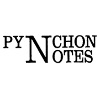Abstract
Thomas Pynchon: Allusive Parables of Power is a rich and suggestive book. Dugdale finished writing it before the appearance of Vineland and chose not to work with Gravity's Rainbow, the sole product of Pynchon's second seven years (1966–1973) as a writer, in order to concentrate on some of the fictions from Pynchon's first seven years of publication (1959–1966): "Mortality and Mercy in Vienna," "Low-lands" and "Entropy," as well as V. and The Crying of Lot 49. To anyone familiar with these texts and with the criticism devoted to them, Dugdale's book offers numerous striking and generative readings. This cornucopian richness makes the reviewer's task difficult; it can be sampled, but it cannot be summarized. I shall therefore focus on some of the more general, hence more easily summarized arguments of the book, but I emphasize that they are not more consequential than the sum of the new nuggets of information and insightful readings of individual passages that the book provides in such abundance.
How to Cite:
Tölölyan, K., (1990) “Pynchon's Intertextual Circuits”, Pynchon Notes , 153-161. doi: https://doi.org/10.16995/pn.282
Downloads:
Download PDF
560 Views
431 Downloads

